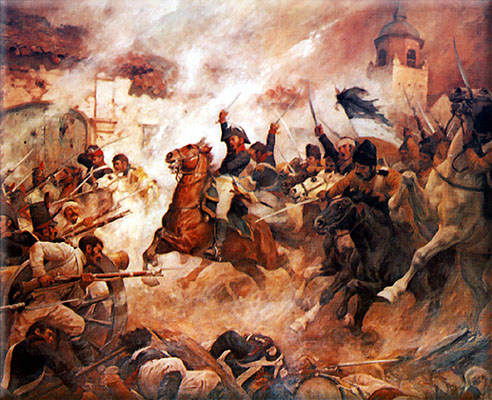|
Г“scar Castro ZГәГұiga
Г“scar Castro ZГәГұiga (March 25, 1910 вҖ“ November 1, 1947) was a Chilean writer and poet. His literary work covered both the lyrical genre and the narrative genre, much more realistic and close to the criollismo movement. Youth and studies (1910 вҖ“ early 1930s) Г“scar Castro ZГәГұiga was born in Rancagua on March 25, 1910, son of Francisco Castro and MarГӯa Esperanza ZГәГұiga, being the third of five brothers: Graciela, Javier, Elba, and Irma. In 1917 he entered as a regular student at ''Escuela Superior в„– 3'', an important public school in Rancagua, however, he became ill with a convulsive cough and had to temporarily abandon his studies. In 1923, the family, after being abandoned by the father, received the support of Julio Valenzuela, an uncle close to the family, who enrolled Oscar at ''Instituto O'Higgins'', a private school, where he would have stayed for at least one year. For various reasons that are unknown, he did not allow his uncle to continue helping him, ... [...More Info...] [...Related Items...] OR: [Wikipedia] [Google] [Baidu] |
Rancagua
Rancagua () is a city and commune in central Chile and part of the Rancagua conurbation. It is the capital of the Cachapoal Province and of the O'Higgins Region, located south of the national capital of Santiago. It was originally named Santa Cruz de Triana by Spanish colonists. In 2012, its population was 232,211. The main economic activities range from mining, tourism, agriculture, timber, food production and services to minor industrial activities. The city also serves as the administrative and legal center of the region. Together with MachalГӯ and Gultro, it forms the Rancagua conurbation. After CuricГі, Talca and ConcepciГіn, it is one of the most important and densely populated cities of the south central zone of Chile. History Foundation period The Rancagua Valley was occupied by the local Picunche. They fell briefly under the control of the Inca Empire in the 15th century. Its remains in structures can still be found near the city today. Through their civil engineeri ... [...More Info...] [...Related Items...] OR: [Wikipedia] [Google] [Baidu] |
HernГЎn DГӯaz Arrieta
HernГЎn DГӯaz Arrieta (1891вҖ“1984), widely known by his pen name, Alone, was a Chilean writer, film critic and memoirist. He won the Chilean National Prize for Literature in 1959. DГӯaz Arrieta was born on May 11, 1891, in the town of Buin on the outskirts of Santiago, Chile. He spent a year in the Seminary of Santiago, a year at the Instituto Comercial de Santiago, and finally attended dental school for a brief time. He then began a 25-year career in the Ministry of Justice eventually becoming the head of the Civil Registry. Despite receiving little formal training, he began his literary career at an early age. In 1913, he published two stories in the journal ''Pluma y Lapiz'' under the pseudonym Alone. He published his only novel in 1915 before devoting his attention to literary criticism. In a career spanning more than sixty years, Alone wrote for a wide array of newspapers and periodicals, penning, most notably, the column ''CrГіnica Literaria'', which first appeared in ''La ... [...More Info...] [...Related Items...] OR: [Wikipedia] [Google] [Baidu] |
Avant-garde
The avant-garde (; In 'advance guard' or ' vanguard', literally 'fore-guard') is a person or work that is experimental, radical, or unorthodox with respect to art, culture, or society.John Picchione, The New Avant-garde in Italy: Theoretical Debate and Poetic Practices' (Toronto: University of Toronto Press, 2004), p. 64 . It is frequently characterized by aesthetic innovation and initial unacceptability.Kostelanetz, Richard, ''A Dictionary of the Avant-Gardes'', Routledge, May 13, 2013 The avant-garde pushes the boundaries of what is accepted as the norm or the '' [...More Info...] [...Related Items...] OR: [Wikipedia] [Google] [Baidu] |
Memoria Chilena
''Memoria Chilena'' (Spanish for ''Chilean Memory'') is a Chilean cultural website which, according to its own words, "offers investigations and documents related to key topics which make up the Chilean identity, accessible through the areas of history, literature, social sciences, music, and visual arts." ''Memoria Chilena'' is, also, a virtual library, which preserves material from the Biblioteca Nacional de Chile and other institutions from the DirecciГіn de Bibliotecas, Archivos y Museos (DIBAM). History The original idea of ''Memoria Chilena'' was conceived in 2001. The website states that, "until now, our objective has been to spread through the Internet the cultural heritage of Chile, contributing to the recuperation, preservation and strengthening of our historic memory." Organization ''Memoria Chilena'' organizes its material through topic sites (sitios temГЎticos), which "approach processes, events, people or relevant works from the Chilean cultural and historic imaginary ... [...More Info...] [...Related Items...] OR: [Wikipedia] [Google] [Baidu] |

